21st CENTURY DEMOCRACY
Social Justice
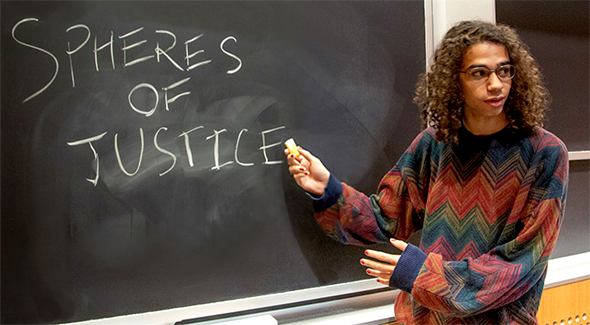
MIT student in a Political Science course on Justice
In this websection, MIT's School of Humanities, Arts, and Social Sciences draws on the expertise of our faculty and colleagues across the Institute to provide research-based insights and resources for strengthening democracy at home and around the world.
Democracy Homepage
______________________________________________________________________
Gallery of Publications
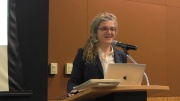
Centering feminism: Investigating marginalized women and potential empowerment
Lerna Ekmekcioglu, MIT’s McMillan-Stewart Associate Professor of History and the director of MIT’s Women’s and Gender Studies program, researches a more inclusive feminism.

NEW RESEARCH FELLOWSHIP
New Shapiro Graduate Fellowship supports research on the History of the African-American Experience of Technology
HASTS PhD student Kelcey Gibbons is the inaugural recipient.
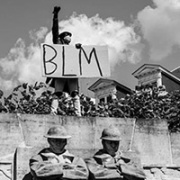
MAKING A JUST SOCIETY
Sustaining the Momentum
Edited by M. Amah Edoh, MIT Professor of Anthropology and Liliane Umubyeyi, co-founder, the African Futures Lab
What will it take to sustain the momentum of movements for racial justice sparked in 2020? Ideas in a new essay collection co-edited by Amah Edoh, MIT Professor of Anthropology, and Liliane Umubyeyi, co-founder/co-director of the African Futures Lab.
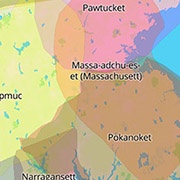
MAKING A JUST SOCIETY
Indigeneity at MIT | A Conversation with David Shane Lowry '03 ('07)
Dr. Lowry is the Distinguished Fellow in Native American Studies at MIT, tasked with leading a conversation at MIT about the actions and responsibilities of the Institute in the history and current realities of Native American communities. A member of the Lumbee Tribe who trained as an anthropologist at MIT, Lowry focuses his research on people and institutions that impact personal and cultural healing.
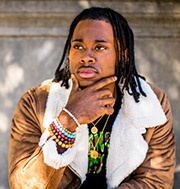
MEET THE MIT BILINGUALS
Brian Williams ’22 | Biological Engineering + Black Studies
Williams is using bioengineering and black studies as a launchpad to combat racism in public health, to use "the toolbox of social justice, pulling the levers of activism, advocacy, democracy, and legislation to improve our social institutions at the root.”
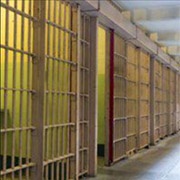
POLITICAL SCIENCE
Making voting easier for previously incarcerated people
People rarely vote after being incarcerated. Associate Professor Ariel White wonders what can be done about it.
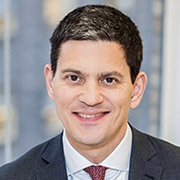
DEMOCRACY | HUMAN RIGHTS
Rt. Hon. David Miliband SM ’90 receives the 2021 Robert A. Muh Alumni Award
His award lecture proposes an "accountability agenda" to restore respect for human rights, democratic norms, and the rights of civilians in combat zones.

MAKING A JUST SOCIETY
Advancing social justice through music and media
It Must Be Now! explores subject matter that includes institutional racism; environmental, economic, gender, and health injustices; police brutality; and abolitionism.

MAKING A JUST SOCIETY
The Bluest Eye turns 50
Commentary by MIT Professor Sandy Alexandre on Toni Morrison's debut novel: "Morrison’s exquisite language has always given her readers a variety of ways, routes, and turns of phrase to understand the world, so perhaps it’s no surprise that she has rendered something like 'structural racism' comprehensible."
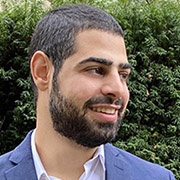
MEET OUR STUDENTS
Profile | Nasir Almasri '21
Political science PhD candidate studies conflicts that emerge at the intersection of politics and religious traditions, with a focus on humanizing those involved.
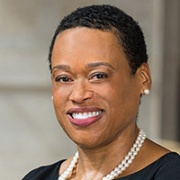
MAKING A JUST SOCIETY | RESTORATIVE JUSTICE
Unearthing the stories of yesterday’s George Floyds
"When we call the victims’ descendants to share our findings, they tell us ‘I never thought I’d get this call.’ The scars remain, and luckily, because we have found documents, so does proof." — Melissa Nobles, Professor of Political Science; MIT Chancellor 2021 - ; Kenan Sahin Dean, MIT School of Humanities, Arts, and Social Sciences 2015-2021
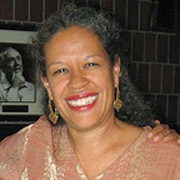
MAKING A JUST SOCIETY | DEI
Everyone's work
Professor of Writing Helen Elaine Lee calls for more engagement in creating racial justice.
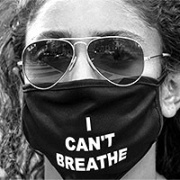
THE MEANINGS OF MASKS
A collective cry for justice | Graham M. Jones
Anthropology
"The mask is one of the most important human artifacts in all of anthropology. It is a tool of transformation that allows its wearers to transcend themselves, taking on timeless roles in ritual dramas, and as actors in a broader social drama."

RACIAL EQUITY AND SOCIAL JUSTICE
A Path Forward
Statement from the faculty of the MIT Comparative Media Studies/Writing program
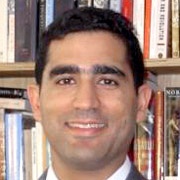
MAKING A JUST SOCIETY
Voices from the MIT Community Vigil
Historian Malick Ghachem delivers remarks on a divided moment.
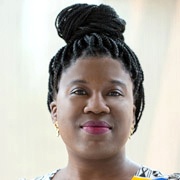
MAKING A JUST SOCIETY
Words + Words + Words
Sandy Alexandre, Associate Professor of Literature, honors and thanks all of the justice-seeking words that came before our 2020 ones.
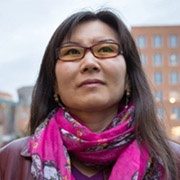
EDUCATION
An ethnology of disruptions in Cambridge, MA
At American Ethnologist, MIT anthropologist Manduhai Buyandelger tracks racism, virtual realities, and world building in Cambridge during the Covid-19 pandemic
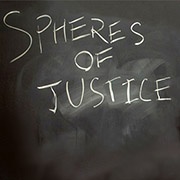
MAKING A JUST SOCIETY
Looking at justice through the lens of political theory
In Bernardo Zacka's 17.01 class, MIT students explore human values and competing theories of the just society
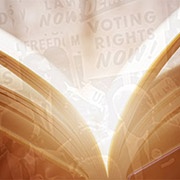
21st C. CITIZENSHIP | LEGACY OF SLAVERY
The Task of History
MIT historians discuss the power of historical knowledge to help make a better world.

MAKING A JUST SOCIETY
MIT and the Legacy of Slavery Project
Stories, Videos, Community Dialogue
“I believe the work of this class is important to the present — and to the future. Something I have always loved about the MIT community is that we seek, and we face, facts. What can history teach us now, as we work to invent the future? How can we make sure that the technologies we invent will contribute to making a better world for all?" — L. Rafael Reif, President of MIT

Media and Resource Collection | MIT and the Legacy of Slavery
Collected stories, videos, media, websites, and other resources about the MIT and Legacy of Slavery project
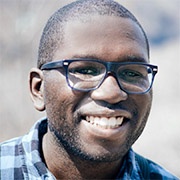
21ST CENTURY CITIZENSHIP
Race and Racism in the 2016 Election
Slate chief political correspondent Jamelle Bouie joins MIT’s Seth Mnookin to explore how race and ethnicity framed the election.
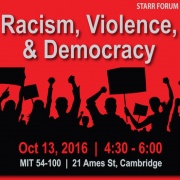
MAKING A JUST SOCIETY
Racism, Violence, and Democracy
Video of a panel discussion on November 16, 2016, sponsored by the MIT SHASS Center for International Studies.
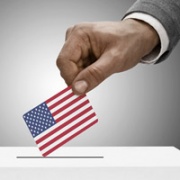
MAKING A JUST SOCIETY
Election Insights: Ariel White on Racial Attitudes and Bias
"There's evidence that government is less responsive to people of color. In my work with Julie Faller and Noah Nathan, we have found that election officials are less likely to respond to informational questions about voting eligibility when they're sent from Hispanic-sounding names than when they're sent by non-Hispanic white names. These officials didn't respond rudely to Hispanic questioners; they simply didn't write back as often, and didn't answer their questions as well."

HEALTH CARE | EQUITY
3 Questions with political scientist Andrea Campbell
Healthcare is both a political and a technical issue
"Any initiative to address health and health care goals must wrestle with and address the enormous disparities that exist in health coverage, access, and outcomes across racial and income groups in the United States. It’s as if poor or black Americans are living in a different country, and in terms of poverty, health insurance, and health care access, effectively they are. This is a political and social problem as much as a technical one."
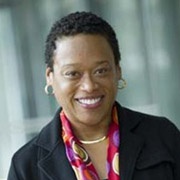
RESEARCH TO POLICY | ADVANCING JUSTICE
3 Questions | Melissa Nobles on advancing racial and restorative justice
Melissa Nobles, Dean of the MIT School of Humanities, Arts, and Social Sciences, and Professor of Political Science, researches historical injustices in democracies. MIT SHASS Communications spoke with Nobles in 2015 about the ongoing aftermath of shooting deaths in Ferguson, New York, and Cleveland, and what her research suggests about the current efforts to advance civil rights in America.